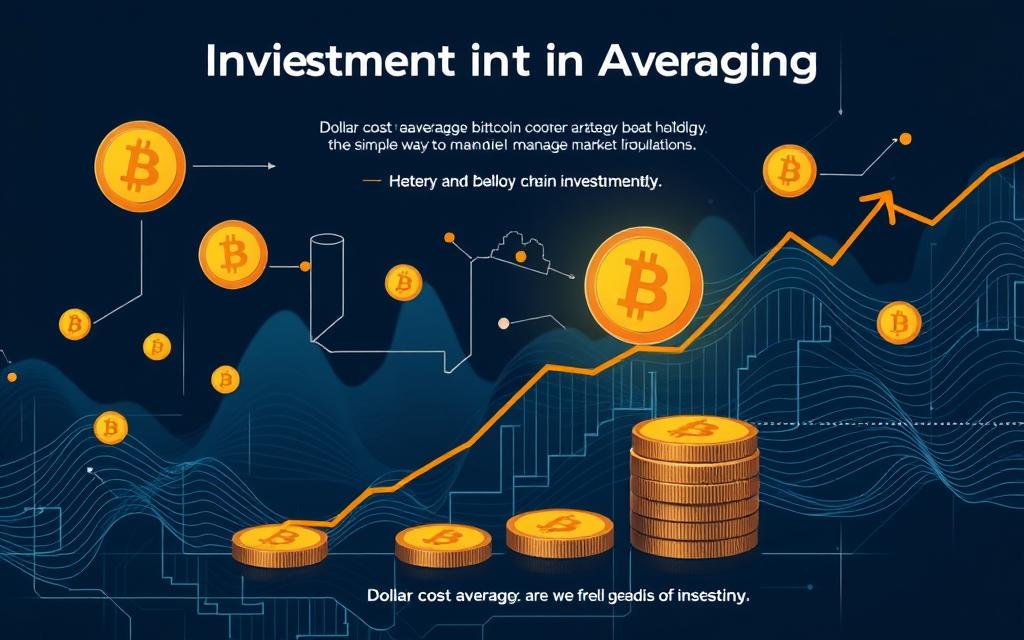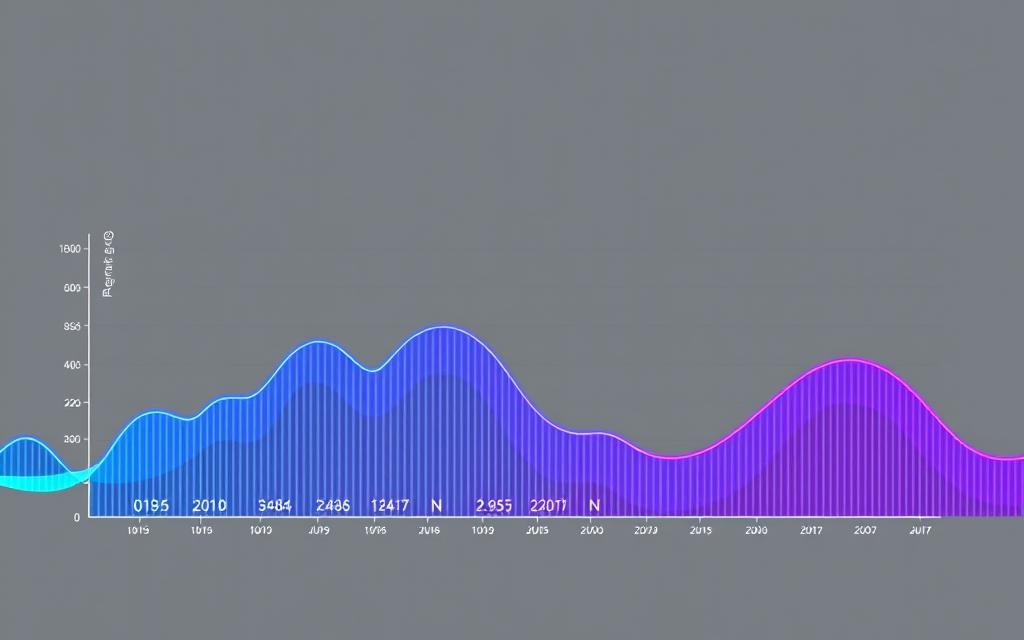Table of Contents
Investing in Bitcoin can be daunting, especially with its rapidly fluctuating price. Many potential investors hesitate, wondering if the market is too volatile or if they’ve missed the optimal time to invest.
The uncertainty surrounding the best time to buy Bitcoin is a common dilemma. Fear of buying at market peaks and regret over missed opportunities can be overwhelming. However, for those who believe in Bitcoin’s long-term potential, the key to successful investment lies in understanding the market dynamics and adopting a sustainable investment approach.
This article aims to provide insights into the optimal timing for Bitcoin purchases, exploring expert recommendations and data-driven strategies to help investors make informed decisions.
Understanding the Bitcoin Timing Dilemma
The quest to time the Bitcoin market perfectly is a daunting task that has puzzled investors for years. As Bitcoin’s price continues to break new records, potential investors are increasingly faced with the question of whether to invest now or wait for a potential dip. With Bitcoin trading above $94,000, concerns among Reddit users include the fear of buying at the top, regret from waiting too long, and the desire to start small by buying fractional Bitcoin.
Investors are torn between the potential benefits of timing the market and the risk of missing out on significant gains. This dilemma is further complicated by the psychological barriers that prevent decisive action, including analysis paralysis and the tendency to overthink market movements.
Common Questions About Bitcoin Timing
Potential Bitcoin investors often ask themselves: “Is now the right time to buy?” or “Should I wait for a dip?” These questions reflect the uncertainty surrounding Bitcoin’s price movements and the challenge of making informed investment decisions. Many investors are also interested in buying fractional Bitcoin as a way to start small.
Why Timing Matters (and Why It Doesn’t)
Timing can be crucial for short-term traders, but for long-term investors, it becomes less significant. The key is understanding that consistently predicting market movements is nearly impossible. A balanced perspective on market timing acknowledges both the potential benefits of strategic entry points and the risks associated with waiting too long. For many investors, a systematic approach may be more effective than trying to time the market perfectly.
| Investment Strategy | Short-term Focus | Long-term Focus |
|---|---|---|
| Market Timing | Critical for maximizing gains | Less significant over time |
| Risk Tolerance | Higher risk for potential high rewards | Lower risk through diversification |
The Psychology Behind When to Buy Bitcoin

The decision to buy Bitcoin is often influenced by psychological factors rather than purely rational analysis. Investors must navigate the complex emotions that drive their decisions, particularly the tension between the fear of missing out (FOMO) on potential gains and the fear of buying at a market peak.
Fear of Missing Out vs. Fear of Buying High
FOMO can lead to impulsive purchases during price rallies, while the fear of buying high can cause hesitation. For instance, commenters on online forums have shared that focusing on long-term goals rather than short-term price fluctuations can help mitigate these fears. One user, u/StackSatSimple, advised, “You’re overthinking it. Go look at a 10-year chart. That’ll give you your answer.”
Overcoming Emotional Decision-Making
To make more informed decisions, investors can adopt strategies that help overcome emotional biases. This includes recognizing cognitive biases such as recency bias, where recent price movements are given too much weight, and confirmation bias, where investors seek information that supports their pre-existing beliefs. By adopting a disciplined investment approach and having a predetermined investment strategy, investors can reduce the emotional burden of trying to time the market perfectly.
Dollar-Cost Averaging: The Smart Investor’s Strategy

Dollar-cost averaging (DCA) is an investment strategy that reduces the impact of volatility on investments by dividing the total amount to be invested across periodic purchases. For Bitcoin investors, this means buying a fixed amount of Bitcoin at regular intervals, regardless of the market’s performance.
How DCA Works for Bitcoin Investments
When you implement a DCA strategy for Bitcoin, you’re essentially spreading out your investment over time. This could mean investing $100 in Bitcoin every week, or any other amount and frequency that suits your investment plan. The key is consistency, which helps in averaging out the cost of your investments over time.
For example, if you decide to invest $1,000 monthly in Bitcoin using a daily DCA, you’d invest about $33 daily. This approach not only simplifies the investment process but also helps in building a disciplined investment habit.
Setting Up an Automated DCA Plan
To set up an automated DCA plan for Bitcoin, you’ll need to choose a reputable cryptocurrency exchange or investment platform that supports recurring purchases. Most platforms allow you to set up daily, weekly, or monthly purchases with ease. It’s essential to select a plan that aligns with your financial goals and risk tolerance.
When setting up your plan, consider factors such as the minimum investment requirements, fees associated with transactions, and the flexibility to adjust your investment amounts. By automating your DCA plan, you can ensure consistent investments in Bitcoin without having to constantly monitor the market.
Best Times to Buy Bitcoin: Data-Driven Insights
Analyzing historical data is crucial for identifying the best times to invest in Bitcoin. By examining price patterns across different timeframes, investors can make more informed decisions.
Daily Patterns in Bitcoin Price Movements
Research indicates that the best time to buy cryptocurrency is in the afternoon, with the evening being a close second. This pattern is based on data from the 90 days prior to June 5, 2025. Timing trades during these periods may offer better buying opportunities.
Weekly Bitcoin Price Trends
Monday appears to be the best day to buy crypto, followed by Thursday. In the last 90 days, Monday had twice the buying opportunities of Thursday. For more insights, visit this analysis on optimal Bitcoin buying times.
Monthly and Seasonal Considerations
Values tend to fall throughout the month, with price collapses more common in the last 10 days. The 10th day of the month has historically seen the most significant drops in value. Investors should be cautious during these periods.
| Timeframe | Best Time to Buy |
|---|---|
| Daily | Afternoon/Evening |
| Weekly | Monday/Thursday |
| Monthly | End of Month |

How Much Bitcoin Should You Buy?
The question of how much Bitcoin to buy is a personal one, dependent on various factors including financial goals and risk tolerance. When deciding on the appropriate amount to invest in Bitcoin, it’s essential to consider your overall financial situation and investment strategy.
Portfolio Allocation Recommendations
Many investors choose to allocate a portion of their portfolio to Bitcoin. The allocation percentage can vary widely, from as low as 1% for conservative investors to 28% or more for those with higher risk tolerance, as suggested by some analysts. A balanced approach could involve using the 50-30-20 rule, where 20% of your income goes to savings and investments, and then deciding what fraction of that amount to invest in Bitcoin.
| Investor Profile | Recommended Allocation |
|---|---|
| Conservative | 1-5% |
| Moderate | 5-10% |
| Aggressive | 20%+ |
Starting Small: The Fractional Bitcoin Approach
One of the advantages of investing in Bitcoin is the ability to buy fractional amounts. This means you don’t need to purchase a whole Bitcoin to start investing; you can begin with a small amount that fits your budget. As you become more comfortable with the investment, you can gradually increase your allocation.
Expert Perspectives on Bitcoin Timing
The question of when to buy Bitcoin has sparked diverse perspectives among financial experts and seasoned investors. While some advocate for a systematic approach, others recommend strategic entry points based on market analysis.
What Financial Advisors Recommend
Financial advisors often suggest a dollar-cost averaging strategy for Bitcoin investments, similar to traditional markets. This approach helps mitigate the risk of market volatility. Advisors also emphasize the importance of aligning Bitcoin investments with overall financial goals and risk tolerance.
Insights from Successful Bitcoin Investors
Successful Bitcoin investors often share their experiences and strategies through online forums like Reddit. Notable investor insights include focusing on the long-term value of Bitcoin and avoiding the temptation to time the market perfectly. As one investor noted, “If you’re buying Bitcoin, think 5-10 years ahead. It’s not a get-rich-quick thing anymore.” 
Experts agree that patience has historically rewarded those who stick with their Bitcoin investment strategy. The consensus is clear: if you believe in Bitcoin’s long-term value, the best time to buy was yesterday—the second-best time is today.
Long-Term vs. Short-Term Bitcoin Investment Strategies
The decision between long-term holding and short-term trading is a crucial one for Bitcoin investors. While both strategies have their merits, they cater to different investor profiles and market conditions.
The HODLer Approach
The HODL (Hold On for Dear Life) strategy involves holding Bitcoin for an extended period, regardless of market fluctuations. This approach requires patience and a strong conviction in Bitcoin’s long-term potential. Historically, long-term holders have seen significant returns, as Bitcoin’s value has appreciated over time. The HODLer approach is less stressful and involves lower transaction fees compared to frequent trading.
When Short-Term Trading Makes Sense
Short-term trading involves buying and selling Bitcoin within a short timeframe to capitalize on market volatility. This strategy requires active market monitoring and a deep understanding of market trends. Short-term trading can be profitable during periods of high volatility, but it comes with higher risks and increased transaction costs. It’s more suitable for experienced traders who can navigate the crypto market’s unpredictability.

Conclusion: Making Your Bitcoin Buying Decision
Ultimately, the right time to buy Bitcoin is when your investment strategy aligns with your financial objectives. To make an informed decision, consider your risk tolerance, financial stability, and understanding of cryptocurrency fundamentals. Dollar-cost averaging can be a prudent approach, reducing the impact of market volatility. Ensure you’re not investing more than you can afford to lose and secure your crypto using a trusted wallet. By doing so, you’ll be better positioned to navigate the complexities of Bitcoin investment and potentially capitalize on its growth potential.
As you move forward, remember that cryptocurrency investments are speculative and subject to significant risks, including volatility and regulatory changes. Thousands of investors believe Bitcoin is here to stay, making it essential to develop your own informed perspective rather than following crowd sentiment. With careful research and a well-thought-out strategy, you can make a more informed decision about your Bitcoin investment.
FAQ
What is the best time to invest in Bitcoin?
The best time to invest in Bitcoin is a matter of debate. Some investors prefer to use a dollar-cost averaging strategy, investing a fixed amount of money at regular intervals, regardless of the market’s performance. This approach helps reduce the impact of volatility on the investment.
How does market volatility affect Bitcoin investments?
Market volatility can significantly impact Bitcoin investments. Prices can fluctuate rapidly, resulting in substantial gains or losses. Investors should be prepared for potential risks and consider their risk tolerance before investing.
What is dollar-cost averaging, and how can it help investors?
Dollar-cost averaging is an investment strategy that involves investing a fixed amount of money at regular intervals, regardless of the market’s performance. This approach helps reduce the impact of volatility on the investment and can be particularly useful for investors who are new to the cryptocurrency market.
How much Bitcoin should I buy for my investment portfolio?
The amount of Bitcoin to include in an investment portfolio depends on individual financial goals, risk tolerance, and investment horizon. It’s essential to assess your overall financial situation and consider portfolio allocation recommendations before making a decision.
What are the risks associated with investing in Bitcoin?
Investing in Bitcoin carries several risks, including market volatility, security risks, and regulatory uncertainty. Investors should be aware of these risks and consider their risk tolerance before investing in this cryptocurrency.
Can I invest a little bit in Bitcoin?
Yes, you can invest a small amount in Bitcoin. Many exchanges allow for fractional Bitcoin purchases, making it possible to start investing with a relatively small amount of money.
How do I set up an automated investment plan for Bitcoin?
To set up an automated investment plan for Bitcoin, you can use a dollar-cost averaging strategy. This involves investing a fixed amount of money at regular intervals, regardless of the market’s performance. You can automate this process through various cryptocurrency exchanges and investment platforms.









